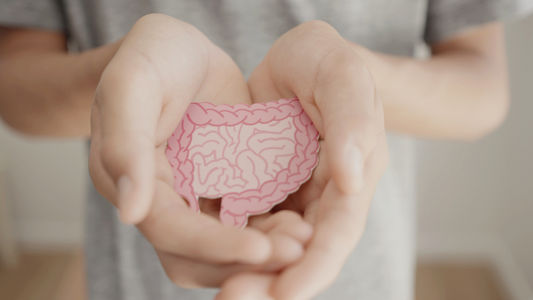
The common causes of fluid retention
share
What is fluid retention?
Fluid retention occurs when excess fluid is stored in the tissues of the body, rather than being directed to the kidneys where it can be naturally expelled. Fluid retention can cause areas of our body to swell and may even cause joints to become painful and stiff. There are many reasons why we might be retaining excess fluid; injuries, hormones, medications and diet can all play a role.
Diet
Salt, or sodium, is essential for life. Sodium helps to keep fluids in the blood perfectly balanced, it helps to keep our blood pressure regular and it’s also important for the healthy functioning of our muscles and nerves. When there is an excess of sodium in the body, your body will try to dilute the sodium levels by encouraging the retention of water.
The body works hard to keep a perfect balance of fluid levels, however, too much sodium can cause a disruption in this balance. We only need a small amount of sodium from our diet to keep our bodies healthy. High sodium foods such as processed foods, takeaway foods, potato chips, crackers and processed meats can all substantially add to our sodium intake. Try to decrease the sodium in your diet by including more fresh fruit and vegetables, particularly foods such as green leafy vegetables, celery, cucumbers, lemons and ginger. Herbs offer great benefits too, parsley is a great natural diuretic, perhaps try your hand at making a big, fresh bowl of tabbouleh. Homemade juices are great too, try celery, green apple and ginger to help flush away excess fluid. Herbal teas can also assist in balancing fluid levels. Check out your local health food store for teas such as celery seed, nettle or dandelion leaf. These teas are caffeine free so help yourself to a few cups a day. Many people find that by taking a good look at their diet, they may be able to improve their fluid retention symptoms.
Hydration
Our water intake is important too, don’t forget that our bodies are made up of around 60% water. Although, seemingly counterintuitive, when we experience fluid retention, increasing our water intake can help flush out excess sodium and help to re-establish a normal balance of fluid within the body. Dehydration can also cause our bodies to retain fluid so try to get at least two litres of pure water every day to keep well hydrated.
Movement
Our daily activities can influence how we retain water as well. If your job keeps you on your feet, by the end of the day you may notice that your legs feel heavy or perhaps your feet are looking a bit puffier than they were in the morning. Sitting for long periods of time can also trigger fluid retention, think long haul flights or sitting at a desk all day. Movement helps improve blood flow and circulation, naturally helping to assist with fluid retention.
Physical injuries or joints affected by mild arthritis can also result in fluid retention as the body draws fluid towards the affected area, creating swollen, painful joints. Gentle exercise or massage may help to mobilise this excess fluid, easing discomfort.
Persistent fluid retention may be a symptom of a more serious health issue, so if swelling continues, please seek the advice of your health professional who will be able to provide you with more information about your treatment options.
share
Stay Informed. Feel Your Best.
Get expert tips and actionable health advice. Be the first to hear about Caruso's product launches and receive exclusive promotional offers.
Join our newsletter today.



